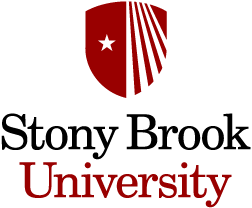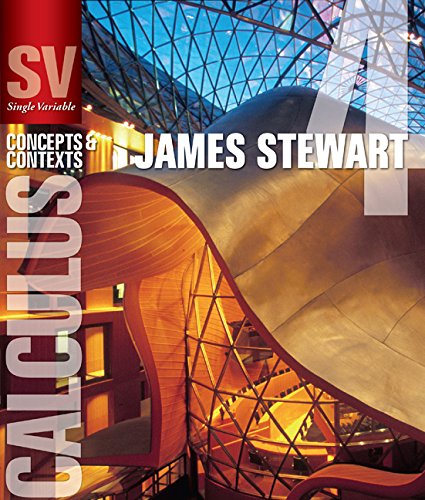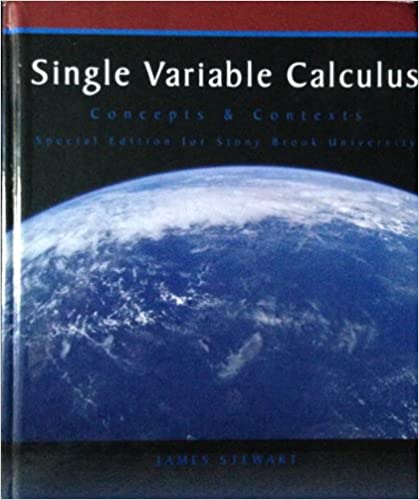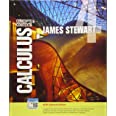
Department of Mathematics |
MAT 132 |

Department of Mathematics |
MAT 132 |
MAT 132 is the second semester of the two-semester calculus sequence MAT 131/132. Topics covered include integration, differential equations, and infinite series. Knowledge of this subject-matter is essential for those wishing to pursue studies in mathematics, the physical sciences, economics, engineering, or a host of other fields. A good grasp of differentiation is assumed at the outset. Some prior familiarity with elementary integration would also be useful, but is not absolutely essential.
Prerequisite: to take this course, you must have received either
 Default Textbook:
Default Textbook: This book is available through the campus bookstore, but you could instead buy it from Amazon, ABE Books, or various other vendors. Buying a used copy could save you a lot of money. In any case, you should not waste any money on buying access to the WebAssign online homework system, because we will not be using WebAssign in this course.
 Equivalent version:
Equivalent version:
James Stewart,
Single Variable Calculus: Concepts and Context,
Special Edition for Stony Brook University,
ISBN 1424073723.
This is really the same book, just sold with a different cover. The problems, page numbers, etc. are the same as in the default version. The only difference is that some Stony Brook shout-outs have been added to the introduction. If you can find a used copy at an attractive price, this might be a very good option.
 The default textbook is also available in paperback or e-book formats.
There is also an "enhanced version" of the 4th edition that consists of all eight chapters of our default textbook,
followed by
additional chapters on more
advanced topics. Other editions of the book are also available, but
should be used with caution, because their homework sets may be different;
if you use one, you should also photocopy the homework sets
from the 4th edition to help ensure that you turn in the right
homework problems at recitation.
The default textbook is also available in paperback or e-book formats.
There is also an "enhanced version" of the 4th edition that consists of all eight chapters of our default textbook,
followed by
additional chapters on more
advanced topics. Other editions of the book are also available, but
should be used with caution, because their homework sets may be different;
if you use one, you should also photocopy the homework sets
from the 4th edition to help ensure that you turn in the right
homework problems at recitation.
Homework: Each week, you should do all the homework problems indicated on the homework web-page. A few of these are even-numbered, and marked in blue; you are expected to turn these in the following week, at the first meeting of your recitation section. (Part of your recitation grade will eventually be based on these blue homework problems.) However, most of the problems of each homework set are odd-numbered, and marked in black; you should do these, too, but not turn them in. Note that the solutions to all the odd-numbered problems can be found at the back of your text-book, in Appendix J. You are free to collaborate on homework, and many of you may find this helpful; however, any homework that you turn in must be in your own handwriting, and should list everyone you collaborated with on the last page. Listing your collaborators will allow you to receive full credit for your homework, without running afoul of the university's strict rules on academic integrity. By contrast, however, collaboration will of course be strictly forbidden on all quizzes and exams in this course.
Doing all the assigned homework problems will help prepare you for the frequent quizzes that will be given in your recitation classes. Even so, the assigned homework sets really just represent a bare minimum. Those hoping to really excel in the course are encouraged to try some additional problems, beyond those listed on the homework web-page.
Instructional staff: You are expected to attend both lectures and recitations every week. Be sure to learn the names of both your lecturer and your recitation leader. You can double-check these by referring to our course staff web-page. Knowing your correct lecture and recitation numbers will be necessary to ensure that you go to the correct room in order to take the exams; students who show up at the wrong room for an exam will be sent away to find the correct room, and will therefore be likely to have considerably less time than the other students to complete the exam. It will also be important to correctly enter your recitation number and Stony Brook ID number on the exams, as this will help ensure that you receive credit for each exam.
The instructional staff is here is to help you learn. If you have complaints about the course, please contact your instructor first. If this does not resolve the matter, you should then contact the Course Coordinator. In the unlikely event that this does not lead to a satisfactory resolution, you may next appeal to the Undergraduate Director, and finally to the Department Chair.
There are good reasons for this policy. By not using a calculator, you will
Internet: Students are expected to have frequent internet access, and to regularly check these web-pages for the latest information regarding the course. Always be sure to use the refresh button on your web-browser to ensure that you are actually seeing the current version of the page, rather than an old copy stored in your computer's cache.
In addition to these math-department web-pages, this course will use Blackboard for certain limited purposes. By contrast, Brightspace will not be used in this course.
| Midterm I | Thursday, September 29 | 8:15-9:35 pm |
| Midterm II | Wednesday, November 2 | 7:50-9:15 pm |
| Final Exam | Thursday, December 8 | 2:15-5:00 pm |
By enrolling in this course, you are
attesting to the fact that you will
be available
for these exams at these times. No excuses, no exceptions.
Grading: Your course grade will be based on your
performance on examinations and in recitations,
weighted as follows:
| Midterm I | 25% |
| Midterm II | 25% |
| Final Exam | 35% |
| Recitation | 15% |
No make-ups will be given for missed midterms. However, if you miss an exam because of convincingly documented circumstances beyond your control, then, at the discretion of the course coordinator, the relevant score may be "dropped" in computing your course grade.
A grade of
Incomplete will be granted only if documented circumstances beyond
your control
prevent you from taking the final exam.
STUDENT ACCESSIBILITY SUPPORT SERVICES (SASC) STATEMENT: If you have a physical, psychological, medical, or learning disability that might impact your course work, please contact the Student Accessibility Support Center, Stony Brook Union Suite 107, at (631) 632-6748 or https://www.stonybrook.edu/sasc/. They will determine, with you, what accommodations are necessary and appropriate. All information and documentation will be treated as confidential.
ACADEMIC INTEGRITY STATEMENT: Students must pursue their academic goals honestly, and everyone must be personally accountable for all submitted work. Representing another person's work as your own is always wrong. The Academic Judiciary requires faculty members to report any suspected instances of academic dishonesty. For more comprehensive information on academic integrity, including categories of academic dishonesty, please refer to the academic judiciary website at https://www.stonybrook.edu/commcms/academic_integrity/.
CRITICAL INCIDENT MANAGEMENT: Stony Brook University expects students to respect the rights, privileges, and property of other people. The Office of Judicial Affairs requires faculty members to report to any disruptive behavior that interrupts their ability to teach, compromises the safety of the learning environment, or inhibits students' ability to learn.